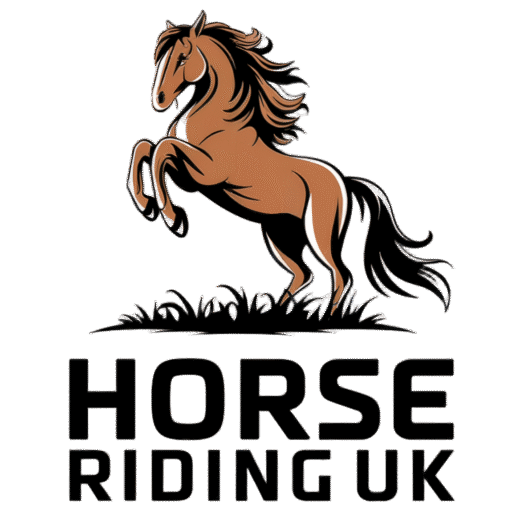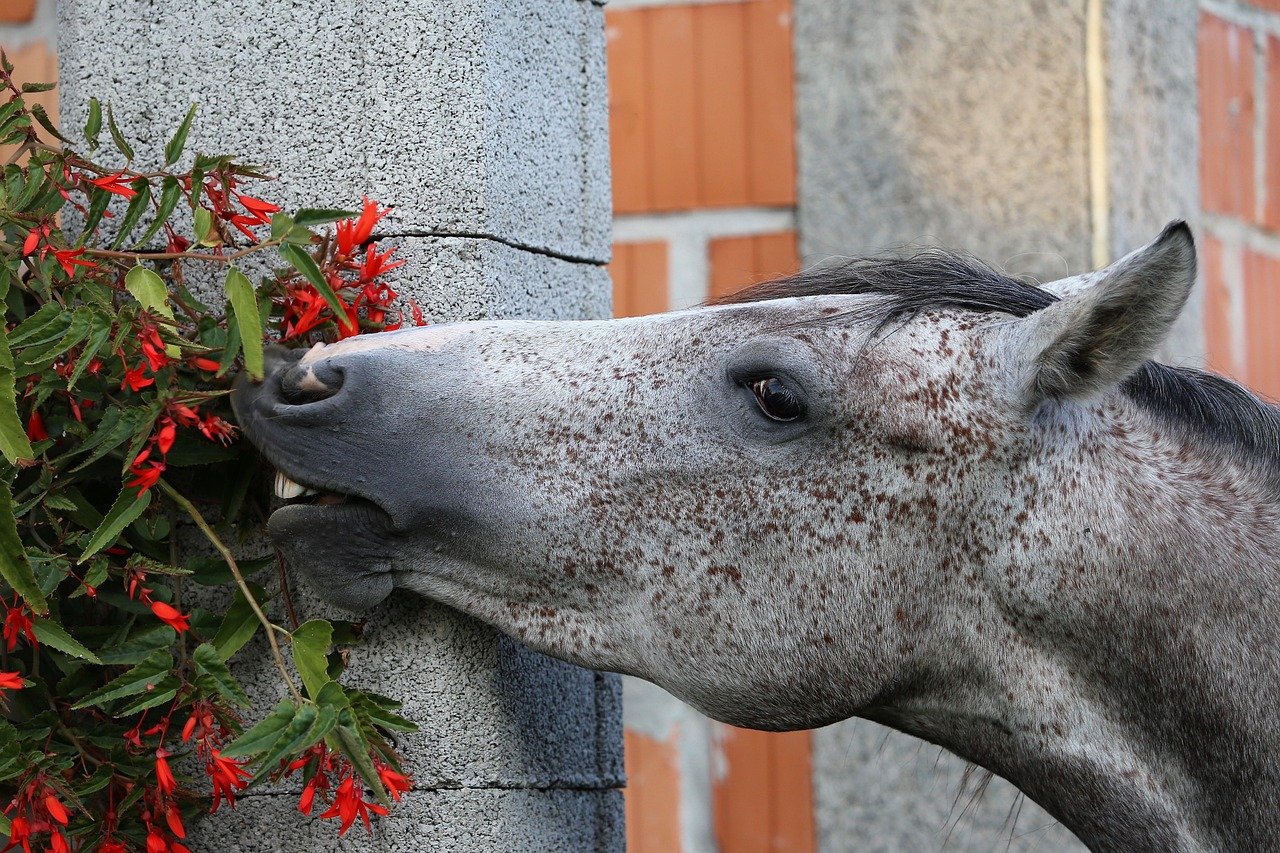If you own or care for a horse, you’ve probably found yourself wondering at some point: “Can my horse eat this?” Horses are naturally curious animals, and they love a tasty treat—but not every food that’s safe for humans is safe for them. Some fruits and vegetables make excellent healthy snacks, while others can cause serious digestive problems or even be toxic.
Because horses have such a sensitive digestive system, knowing what they can and cannot eat is an essential part of responsible horse care. A sudden change in diet or a well-intentioned but unsafe treat can lead to colic, laminitis, or other health issues. That’s why it’s so important to separate the safe snacks from the ones to avoid.
In this ultimate guide, we’ll explore everything from fruits and vegetables to grains, treats, and human foods. You’ll find out which foods are safe in moderation, which should be limited, and which you should never feed your horse under any circumstances.
Along the way, we’ll also link to detailed guides on individual foods—so if you’re ever unsure about something specific like grapes, cucumbers, or bread, you’ll have a clear answer at your fingertips.
Let’s dive in and make sure your horse’s diet stays not only safe but also enjoyable.
Understanding a Horse’s Digestive System
To understand why some foods are safe for horses and others are dangerous, it helps to know a little about how their digestive system works. Unlike humans, who have a single-chambered stomach designed to break down a wide variety of foods, horses are known as hindgut fermenters. This means most of their digestion happens in the large intestine, where bacteria and microbes break down fibrous plant material.
Horses are grazing animals, evolved to eat small amounts of grass and forage almost constantly throughout the day. Their stomachs are relatively small, holding only a few litres at a time. Because of this, feeding large meals of concentrated food or introducing unfamiliar treats too quickly can overwhelm the digestive system and cause serious health problems such as colic, gas build-up, or laminitis.
Another important point is that horses cannot vomit. Once a horse swallows something, it has to move all the way through the digestive tract. If a food is toxic, moldy, or indigestible, the horse’s body has no quick way to get rid of it. That’s why prevention—knowing what’s safe before you feed it—is so critical.
For a healthy diet, the foundation should always be forage—hay or pasture grass—making up at least 70–80% of what your horse eats. Fruits, vegetables, and other treats can be added in small amounts, but they should never replace the essential roughage that keeps the gut functioning properly.
By keeping their natural grazing behaviour in mind and introducing new foods slowly, you’ll help your horse maintain a balanced digestive system and avoid unnecessary risks.
Safe Foods for Horses (Fruits & Vegetables)
While a horse’s main diet should always be forage, many fruits and vegetables can be offered as healthy treats in moderation. Here’s a list of some safe options:
Fruits
-
Apples – Remove seeds; feed in small slices.
-
Pears – Also remove seeds; sweet and hydrating.
-
Grapes – Offer in moderation; high in sugar.
-
Strawberries – Small quantities only; wash thoroughly.
-
Bananas – Peel first; slice into manageable pieces.
-
Blueberries – Rich in antioxidants; great as occasional treats.
Vegetables
-
Carrots – A classic treat; cut into sticks to avoid choking.
-
Cucumber – Hydrating and low-calorie; slice thinly.
-
Pumpkin – Safe raw or cooked; avoid seeds for small treats.
-
Parsnips – Feed sparingly; high sugar content.
-
Broccoli – Small florets; some horses may not like the strong taste.
-
Zucchini – Slice into pieces; low-calorie option.
Tips for Treating Your Horse
-
Always introduce new foods gradually.
-
Feed small amounts to avoid upsetting the digestive system.
-
Wash all fruits and vegetables to remove pesticides or chemicals.
-
Avoid seeds, pits, or skins that could be toxic or cause choking.
By offering these fruits and vegetables as occasional treats, you can add variety, nutrients, and fun to your horse’s diet while keeping them safe and healthy.
Foods Horses Should Avoid
While some fruits and vegetables are safe, many common foods can be harmful or toxic to horses. Always double-check before offering anything new.
Harmful Fruits & Vegetables
-
Avocado – Contains persin, which is toxic to horses.
-
Rhubarb leaves – Highly poisonous; never feed any part of the leaves.
-
Tomato leaves and stems – Can cause digestive upset; ripe fruit in small amounts is safer.
-
Potato leaves and green skin – Contain solanine, which is toxic.
-
Onions & Garlic – Can cause anemia and digestive issues.
Common Human Foods to Avoid
-
Bread – Can expand in the stomach and cause colic or choke.
-
Chocolate – Toxic due to theobromine.
-
Candy & Sugary Snacks – Lead to laminitis and digestive upset.
-
Caffeinated Drinks – Coffee, tea, and energy drinks are harmful.
-
Processed Foods – Chips, cookies, and fast foods are unsafe for horses.
Dangerous Plants
-
Yew – Highly toxic; avoid all forms.
-
Oleander – Fatal even in small quantities.
-
Azalea & Rhododendron – Can cause severe digestive and heart problems.
Safety Tips
-
Always research before feeding your horse anything new.
-
Introduce new foods slowly and in small quantities.
-
Keep potentially toxic foods out of reach in barns and pastures.
-
When in doubt, stick to forage, hay, and veterinarian-approved treats.
Can Horses Eat? Complete Food Safety Guide
| Food | Safe for Horses? | Notes / Tips |
|---|---|---|
| Grapes | ✅ Yes | Offer a few at a time; sweet and safe. |
| Cucumber | ✅ Yes | Hydrating and low-calorie; safe as a treat. |
| Parsnips | ✅ Yes | Can be fed raw or cooked; small amounts. |
| Pumpkin | ✅ Yes | Remove seeds if feeding regularly. |
| Strawberries | ✅ Yes | Treat in moderation; high in antioxidants. |
| Broccoli | ✅ Yes | Limit quantity due to gas risk. |
| Pears | ✅ Yes | Remove seeds; offer as a treat. |
| Carrots | ✅ Yes | Classic horse treat; safe in moderation. |
| Apples | ✅ Yes | Remove seeds; can cause choke if whole. |
| Melon | ✅ Yes | Small portions; remove rind if hard. |
| Blueberries | ✅ Yes | Small, antioxidant-rich treats. |
| Watermelon | ✅ Yes | Remove seeds; very hydrating. |
| Mango | ✅ Yes | Sweet; feed in moderation and remove pit. |
| Peaches | ✅ Yes | Remove stone; soft flesh only. |
| Zucchini | ✅ Yes | Can be sliced; safe raw or cooked. |
| Bell peppers | ✅ Yes | Remove seeds; feed in small amounts. |
| Spinach | ✅ Yes | Offer occasionally; oxalates in large quantities. |
| Sweet potatoes | ✅ Yes | Cooked is best; small portions. |
| Oats (raw) | ✅ Yes | Common horse feed; mix with other foods. |
| Bananas | ✅ Yes | Remove peel; high sugar, feed sparingly. |
| Raspberries | ✅ Yes | Small treat; high in fiber. |
| Cantaloupe | ✅ Yes | Remove seeds; hydrating. |
| Blackberries | ✅ Yes | Low-calorie treat; small portions. |
| Kiwi | ✅ Yes | Peel recommended; vitamin-rich. |
| Peanuts (unsalted) | ✅ Yes | Feed very small amounts; potential choking risk. |
| Bread | ❌ No | Can expand in stomach; risk of choke or colic. |
| Chocolate | ❌ No | Toxic due to theobromine. |
| Candy / Sugary snacks | ❌ No | Risk of laminitis. |
| Onions / Garlic | ❌ No | Can cause anemia. |
| Avocado | ❌ No | Contains persin; toxic to horses. |
| Rhubarb leaves | ❌ No | Highly poisonous. |
| Tomato leaves & stems | ❌ No | Can upset digestion. |
| Potato leaves / green skin | ❌ No | Contain solanine; toxic. |
| Caffeinated drinks | ❌ No | Harmful to horses. |
| Yew / Oleander / Azalea / Rhododendron | ❌ No | Highly toxic; keep away from pasture. |
Tips for Feeding Horses Safely
- Moderation is Key – Even safe fruits and vegetables should only be fed in small amounts. Too much sugar or fiber can cause digestive issues.
- Remove Seeds and Pits – Many fruits contain seeds or pits that can be toxic or pose a choking hazard. Always remove them.
- Introduce Slowly – Introduce new foods gradually to avoid upsetting your horse’s digestive system.
- Avoid Certain Foods – Some common human foods, like chocolate, onions, and processed bread, can be harmful to horses. Always double-check before feeding anything new.
FAQ: Can Horses Eat These Foods?
Q1: Can horses eat grapes?
Yes, horses can eat grapes in moderation. Always feed small pieces and remove seeds if possible to avoid choking hazards.
Q2: Can horses eat cucumber?
Yes, cucumbers are safe for horses and make a hydrating, low-calorie treat. Slice into manageable pieces for easy feeding.
Q3: Can horses eat parsnips?
Yes, parsnips can be fed occasionally. Introduce slowly and in small amounts to avoid digestive upset.
Q4: Can horses eat pumpkin?
Yes, pumpkin is safe for horses and can be served raw or cooked. Remove seeds and rind before feeding.
Q5: Can horses eat strawberries?
Yes, strawberries are a sweet, safe treat for horses. Feed in moderation to prevent stomach upset.
Q6: Can horses eat broccoli?
Yes, horses can eat broccoli, but feed only the florets in small amounts. Stems may be harder to digest.
Q7: Can horses eat pears?
Yes, pears are safe for horses if cut into bite-sized pieces and seeds are removed.
Q8: Can horses eat bread?
No, bread is not recommended for horses. It can cause digestive issues and lacks proper nutrients.
Q9: Can horses eat watermelon?
Yes, watermelon is safe and hydrating. Feed small pieces without the seeds or rind.
Q10: Can horses eat bananas?
Yes, bananas are safe. Peel and slice before offering as a treat.
Q11: How much fruit can I give my horse?
Treats should make up no more than 10% of a horse’s diet. Always feed in moderation and observe your horse for any digestive issues.
Q12: What foods should I never feed my horse?
Avoid chocolate, avocado, onions, garlic, potatoes, and processed human foods—they can be toxic to horses.
Conclusion
Knowing what your horse can safely eat is essential for keeping them healthy and happy. This guide covers a wide range of fruits, vegetables, and treats that are generally safe, but moderation and preparation are key. Always observe your horse after introducing a new food and consult with a vet if you’re unsure.
Treat your horse wisely, and you’ll enjoy a happy, healthy equine companion!



